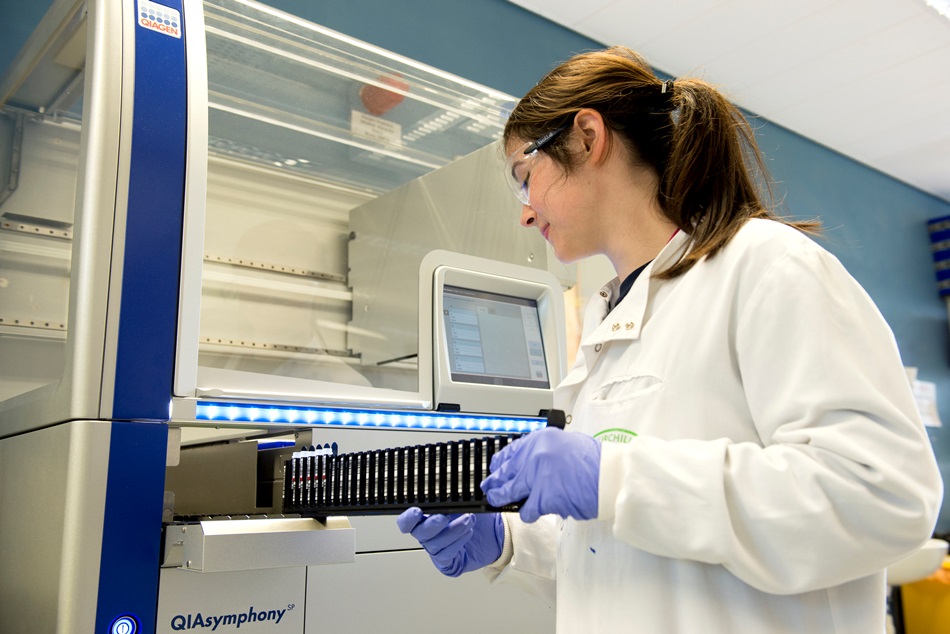Work in this sub-theme will focus on our genetic sequencing expertise, especially in relation to respiratory viruses. Key activities include:

- Designing and implementing a flu assay, first in the lab and then translating this to use with patients, using our high throughput platform. We aim to make the protocol for this work public so that others can use it.
- Evaluating diagnostics for respiratory viruses that are currently available, as well as new ones that emerge.
- In a major piece of work, we are investigating new diagnostic technologies for a range of pathogens. The three main ones we are looking at are:
- on-chip sequencing enrichment – selectively sequencing pathogens out of a given sample
- cell-sorting microfluidics – designing a way of using microfluidics to separate out the different components of a clinical sample, allowing us to study pathogens in greater detail.
- cellular imaging – taking microscopic pictures of samples containing pathogens and putting them into a machine learning algorithm that can determine what it is and whether it is resistant or sensitive to an antibiotic or antimicrobial.
- Building on our successful Bash the Bug project, we are engaging in other Zooniverse citizen science work developing machine learning algorithms for image and data processing.
- High-throughput workflows for different sample types – we already deal with specific sample types that comes through the hospital, and have done some work looking at samples from prosthetic joints. We are now looking to conduct the same kind of sequencing analysis from pus, cerebral spinal fluid and blood cultures.
Developing accurate tests for SARS-CoV-2 diagnosis
At the start of the COVID-19 pandemic, we did not have effective antibody tests, which can tell whether a person has previously been infected, or antigen tests, which show if a person is currently infected. Developing such tests became a major focus of our research.
The evaluations we carried out enabled the lateral flow test diagnostic programmes that are now used across the UK.
We also led the development of a high-throughput antibody test, which allows us to more than 6,000 blood samples for SARS-CoV-2 antibodies every day. Our antibody testing team directly supported the Office for National Statistics’ COVID-19 Infection Survey, to which more than 480,000 individuals in the UK contributed, with our results directly informing national and international pandemic policy, as well as helping us to understand vaccine performance.
GPAS: a global microbe sequence analysis pipeline
We have improved on the existing methods of taking microbes from patient samples and processing them with genetic sequencers. Sequencing data tell us which microbe is causing an infection and which drug should be used as to treat patients.
We have developed a single analysis ‘pipeline’ to process sequencing data which is flexible, accurate and fast. We have joined forces with a computer software company, which has donated unlimited cloud computing resource for ten years to set up our sequencing data analysis pipeline for use completely free of charge worldwide.
This service, the Global Pathogen Analysis System (GPAS), can be used by people in healthcare and public health globally to analyse hundreds of thousands of microbe sequences to work out:
- which microbes are causing infections in which countries
- how microbes spread around the world
- whether we need to be using different treatments in different settings to better treat patients’ infections.
GPAS, which can process over 70,000 SARS-CoV-2 sequences a day, is already supporting the analysis of SARS-CoV-2 sequences in many countries around the world. We will use GPAS to fight other major global disease-causing microbes, such as tuberculosis, to support national and international public health efforts.